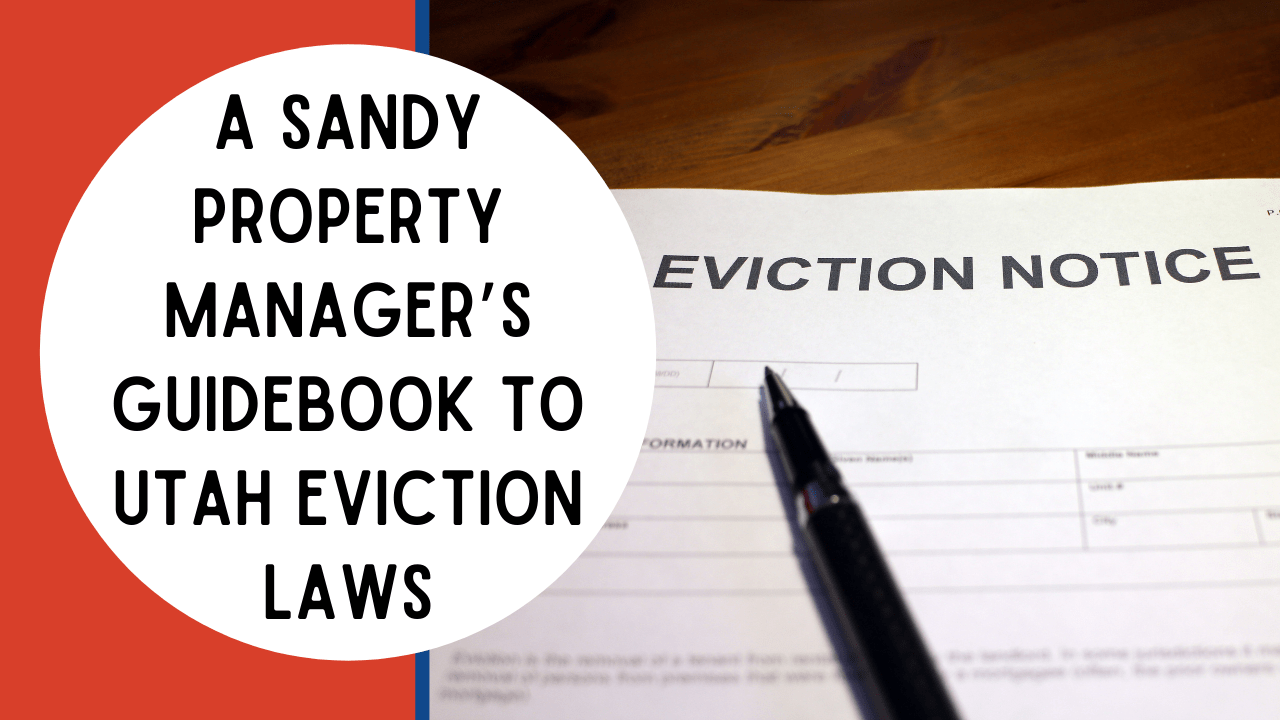
Traditionally, evicting a tenant in Sandy can happen fairly quickly if you’ve been careful about documenting your tenant’s lack of payment or lease violations. These days, things are more complicated, with the CDC eviction moratorium in place for tenants who have been financially impacted by the COVID pandemic and who are unable to pay their rent.
It’s important, nonetheless, for property owners to understand the eviction process outside of the moratorium. Utah does not allow you to remove a tenant from your property without a proper court order. You need to be prepared, and you need to follow the law.
Safeguard is recognized as a leader in Salt Lake City property management. We provide residential rental management services to owners of single-family homes, townhouses, condos and duplexes throughout Salt Lake County and the northern portion of Utah County.
Serving a Notice to Pay or Quit
When rent isn’t paid and any grace periods have expired, you will start the eviction process with a Notice to Pay or Quit. This is a formal letter that you serve your tenants to let them know that rent is late and they have to either catch up with rent or move out of the home. If your tenants do not pay rent within the days specified in the notice, they must move out of the property or face further eviction proceedings.
Usually, you can expect your tenants to catch up with the rental payment at this point because they won’t want the situation to escalate. You may be asked if they can make a partial payment or pay a few days or a week from the date of the notice. How you handle this depends on whether you’re eager to get the tenant out or you’re hoping to keep the tenant in place and ultimately collect the payment. If you do agree to a payment arrangement, put it in writing and move forward with the eviction process if the tenant does not come through.
Filing for Eviction in Court
 If the tenant doesn’t pay and also doesn’t move out of the property, the next step is to file for an eviction in court. That will result in a summons and complaint being sent to the tenant. They have a few days to respond. If they do respond, a court date will be set for an occupancy hearing. If they don’t respond, the landlord can file for a default judgment, which will return possession of the property back to the owner.
If the tenant doesn’t pay and also doesn’t move out of the property, the next step is to file for an eviction in court. That will result in a summons and complaint being sent to the tenant. They have a few days to respond. If they do respond, a court date will be set for an occupancy hearing. If they don’t respond, the landlord can file for a default judgment, which will return possession of the property back to the owner.
The occupancy hearing will determine whether the eviction case goes to trial. Either way, the tenant or the landlord will ultimately win the case. Unless you have failed to uphold your own responsibilities in the lease agreement or you cannot prove that the tenant has not paid rent, you are likely to win your judgment and move towards having possession returned.
If the tenant does not move out on their own, you’ll have to get the sheriff to physically remove the tenant from the property. Prepare to change the locks and begin getting the home ready to be rented again.
You don’t need an attorney to evict a tenant in Utah, but we strongly recommend you get some professional advice before attempting to evict a tenant, especially now that the moratorium is in place. You’ll also have to take extra precautions when the tenant you’re evicting is an active military service member.
As we stated at the beginning of this blog, Covid has made any eviction much more complicated. Talk to a Sandy property management company like ours. You can contact us anytime at Safeguard Property Management.
